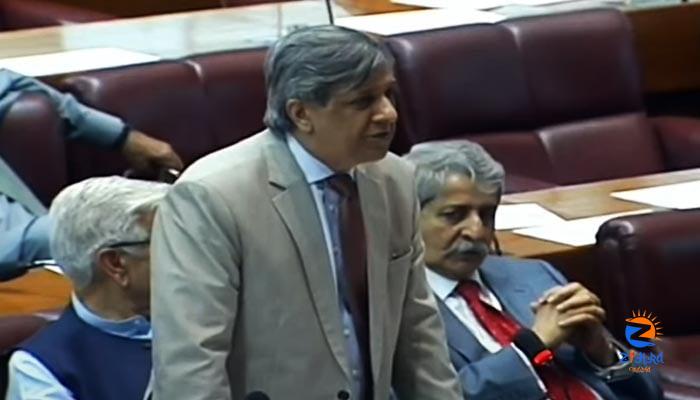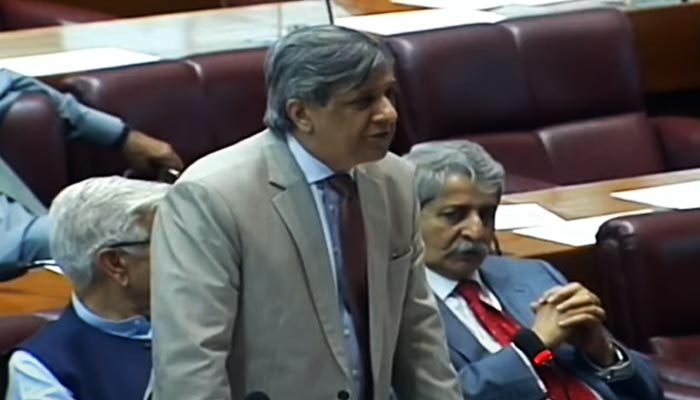
[ad_1]
ISLAMABAD: The parliament’s joint sitting has passed the National Accountability (Amendment) Bill, 2023, seeking to “empower” the body’s chairman, after President Arif Alvi refused to give his assent.
Both houses — the National Assembly and the Senate — passed the bill in April, but the president — in the same month — returned the bill to the parliament and advised the lawmakers to “reconsider” the amendments.
The president sent the bill back to the parliament under Article 75(1)(b) of the Constitution, saying that earlier amendments to the accountability laws were already pending before the Supreme Court — after Pakistan Tehreek-e-Insaf (PTI) Chairman Imran Khan challenged earlier amendments.
“This aspect has not been addressed in the bill and the prime minister’s advice,” the president had noted.
Now, as the joint sitting has passed the bill, even if the head of the state does not approve it within 10 days, the Constitution states that it will be deemed that the president has given his assent.
Presenting the motion for seeking approval of the bill, Law Minister Azam Nazeer Tarar said the laws that were made during a dictator’s rule were now being used for political engineering.
The minister mentioned that despite Pakistan Tehreek-e-Insaf’s (PTI) claim that the bill was an “NRO-II”, time would show the party that it is really an “NRO-II” for the PTI.
“NAB, under former chairman Javed Iqbal, was used for political engineering,” Tarar said.
Referring to the Supreme Court hearing on the NAB bill, the law minister said no institution has the right to interfere in the parliament’s matters.
“We have not interfered in any other institution’s jurisdiction so far [and we expect the same from the judiciary],” the minister said.
The law minister added that the president — who returned the bill — has no right to seize the parliament’s rights as he has “no idea about the parliament’s powers”.
After the minister’s motion, Jamaat-e-Islami’s Senator Mushtaq Ahmed called for making some amendments to the law, but the house rejected those suggestions.
The bill
The amendments made to the National Accountability (Amendment) Bill, 2023 state that all pending inquiries shall be examined by the chief.
“If the chairman is satisfied that no case is made out against an accused and the investigation may be closed, he shall refer the matter to the court for approval and for the release of the accused, if in custody.”
“Where the chairman is of the opinion that prima facie case is made out against an accused under any other law for the time being in force, he shall refer the matter to the relevant agency, authority or department, as the case may be,” said the bill.
The amendment in Section 6 says, “Provided that as and when the office of the Chairman NAB falls vacant or when the ‘Chairman NAB is absent or unable to perform the functions of his office; due to any ‘reason whatsoever, the deputy chairman NAB shall act as chairman NAB and in absence of deputy chairman NAB, the federal government shall appoint an acting chairman NAB from amongst the senior officers of the NAB.”
It further states that owing to the recent amendments made in the National Accountability Ordinance, 1999 (XVIII of 1999), “some legal complications have arisen for transfer of those cases, from the accountability courts to other courts, tribunals and forums, which do not fall within the domain or jurisdiction of the NAB Ordinance.”
“On the initiative of the Prosecutor General Accountability and after having the input of relevant stakeholders, certain further amendments in the NAB Ordinance are required to be made urgently to provide legal cover to the accountability courts for transfer of aforesaid cases,” it added.
[ad_2]
